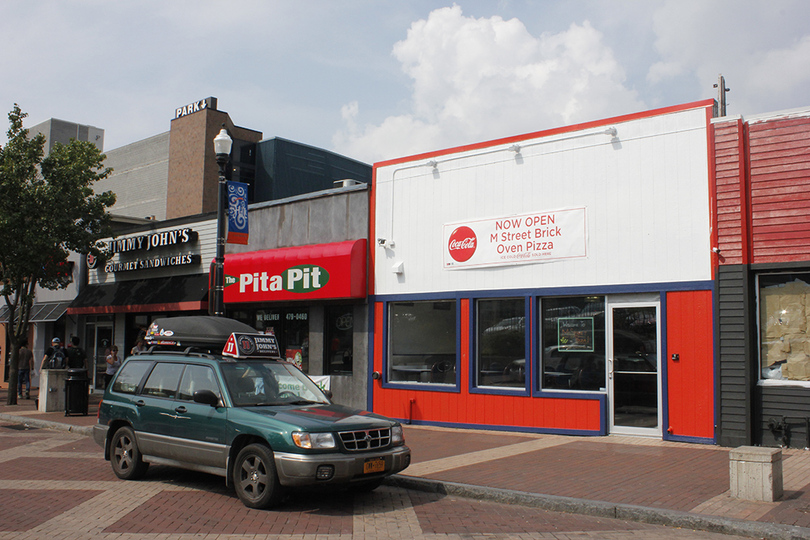B
y the time Jacobs shut down M Street on May 27, 2016, his relationships with M Street’s employees had started to deteriorate. Only one employee who was hired when M Street opened stayed until it closed. The rest were fired or had quit.
In interviews with The Daily Orange, 11 former M Street employees described their interactions with Jacobs, who some described as “erratic” and “difficult to work for.” The result was a chaotic and stressful workplace marred with infighting between Jacobs and the employees.
Jacobs declined to meet with reporters from The Daily Orange for an in-person interview regarding this story. In the emailed statement, Hobaica asked if The Daily Orange’s reporting on M Street’s closure was a “witch hunt.”
“I’m left wondering why The D.O. has any interest in Mr. Jacobs, his business ventures or any of his tenants,” Hobaica said in the email. “Does someone have a bone to pick? Is someone on some sort of witch hunt here?”
The relationship between Jacobs and Ramirez was particularly fraught. Former employees said Jacobs frequently changed work schedules Ramirez had made and canceled shifts for employees she’d scheduled — sometimes with as little as 15 minutes notice. Allen and Smith suggested Ramirez distribute promotional material at nearby hospitals, and recalled Jacobs saying Ramirez was “not a good representative of our brand.”
“All I did was put out fires and try to make people happy,” Ramirez said. “And it was just so hard. He’s a very difficult man to work for.”
Jacobs was not the day-to-day manager of M Street, but was still privy to its inner workings through a system of security cameras set up at M Street and Shirt World, a Jacobs-owned SU apparel shop two storefronts down from the restaurant. Former employees said Jacobs would monitor the cameras and, when he saw something he didn’t like, would call or come into the store.
All I did was put out fires and try to make people happy. And it was just so hard. He’s a very difficult man to work for.Lisa Ramirez, M Street's former general manager
“Literally he drove everybody in the building crazy because he was in there every 10, 15 minutes,” said Tom Dittrich, a former pizza maker at M Street. “And then the camera thing. Oh my god, the camera thing was insane. He would watch it and call and be like, ‘Why is this person just standing there?’”
Former employees said Jacobs fixated on what they thought were unnecessary grievances, such as not having enough pizza in the display case or not doing enough to shorten the line of customers, even though, employees said, everyone was busy working.
“He would call on the phone and be like, ‘Why isn’t there a fresh pizza up there?’ Well, they just bought it. Every other normal human would understand,” said Jeremy Miller, a former pizza maker and the only employee who said he worked at M Street from start to finish.
Former employees said Jacobs was preoccupied with what he called “the brand.” He would often tell employees to throw out entire pizzas or change the recipe because the pizzas didn’t look “on brand,” former employees said. They weren’t shiny enough, or didn’t have the right amount of sauce, or he didn’t like the color of the cheese. Jacobs was determined to make the pizzas glisten and would often use a spray bottle of olive oil to douse the pizzas in the display case, former employees said.
“So how can you have ‘the brand’ when you change it every day?” Dittrich said. “Every time he comes in he would change it. ‘I want it this way. No, I want it that way.’”
Some could deal with Jacobs’ interruptions, rants about “the brand” and what they viewed as undeserved criticism. They needed the money. For others, it drove them to quit.
“It was annoying. It was definitely hostile,” said David Dailey, a former pizza maker at M Street who quit about a month and a half before the pizzeria closed. “It got to the point where I didn’t even want to go into work anymore because it was, you know, that bad.”








